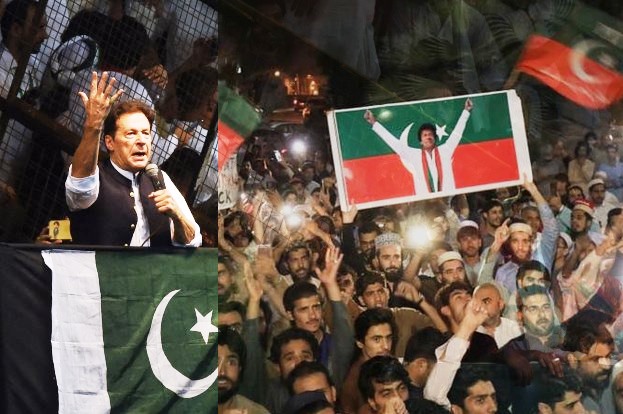Pakistan has reached a precipice, going by the developments this week that point to an uncertain future. Commentators have for some time darkly warned of a fourth phase of Martial Law. But that is something one will have to wait till it actually happens — or does not happen.
It may not, if the much-vaunted ‘establishment’ pushes a via media among the squabbling politicians. The all-powerful army is silent. Its new Chief, Gen. Syed Aseem Munir, is silently settling down amidst calumny about its predecessor and the top army brass.
The saving grace from his standpoint is that the army remains both respected and feared. The politicians, even when they malign it or assert their democratic credentials, turn to it to clear the mess they accumulate — with or without the army’s contribution — from time to time.
The attempt on March 15 to arrest former Prime Minister Imran Khan miserably failed and given the judicial intervention, is unlikely to be repeated. It seemed doomed from the beginning and raised doubts about the wisdom of the incumbent government, especially Prime Minister Shehbaz Sharif, who has an enviable record, otherwise, of governing the populous and powerful Punjab for five years.
It has made Khan a hero and his Pakistan Tehreek-e-Insaf (PTI) could sweep the national elections and in the provinces, particularly Punjab and Khyber Pakhtunkhwa, that seem likely to be held sooner than later.
But for that to happen, the ‘establishment’ will have to consider far too many factors, on which horse (or stable) to back. It has tried out the Bhutto-Zardaris and the Sharifs in the past and must evaluate Khan afresh.
For, Imran Khan is the latest of the army’s ‘proxies’ to turn rogue, to the extent of publicly asserting this month that he does “not need the establishment.” He has maligned it day in and day out since he lost power in April last year.
And yet, from within the confines of his home on March 15, with violence and protests raging outside, he asked the ‘establishment’ to withdraw support to the Sharif government if it wanted the political stalemate to end.
Out of power, Khan has retained political support, going by his bye-election victories. He enjoys support from the vocal middle classes. But the craze for Khan among many Pakistanis is emotional, and not rational.
Support has come from sections of polarized media; notice the way some respectable media outlets saw no difference between ‘firing’ and “firing of teargas shells” while reporting the standoff outside Khan’s Lahore residence.
Part of the confident and defiant show Khan put up came from the judiciary which has a record of acting in tandem with the army. One court ordered his arrest for failing to appear before it, and the other court halted or suspended the arrest when met with protests from Khan’s supporters. The judiciary has done and undone elections, poll schedules, even forced resignations of the prime minister, and much more, depending upon pressures coming from powerful quarters.
Khan is known to enjoy the support of sections of the army that abhors the two ‘dynasties’ and perhaps, thinks a charismatic Khan is a better horse to back, notwithstanding his famous “U-turns”. Everyone knows that his anti-military fulminations are bound to end the day general elections are announced. There will then be a scramble for support from the ‘institution’. The popular word for the favourite is ‘laadla’.
The ball remains in the army’s court – notice the way Shehbaz Sharif has belatedly joined in, long after Khan’s relentless attacks on the controversial former chief, Gen. Qaisar Javed Bajwa. Without saying it in so many words, principal contenders for power, it would seem, are looking to the current Chief to act.
What the “ides of March” and the coming weeks have in store for Pakistan, is not clear. But even the general elections, due in August anyway, may not solve the multiple issues confronting Pakistan. High on the long list is violence by militants unleashed at will by the outlawed Tehreek-e-Taliban Pakistan (TTP) and other groups.
The Sharif Government has so far failed to ease the economic distress with a tranche of the International Monetary Fund (IMF). That Finance Minister Ishaq Dar had to telephone the American Embassy in Islamabad seeking its intervention is an indicator.
The way the global lender has delayed it has brought the Sharif Government to its knees. The problem began with Khan who dragged his feet for nearly four years while engaging in anti-West rhetoric meant to please the domestic audiences. But this is precisely what feeds the political discourse in Pakistan and it is likely to heighten as the country nears elections.
